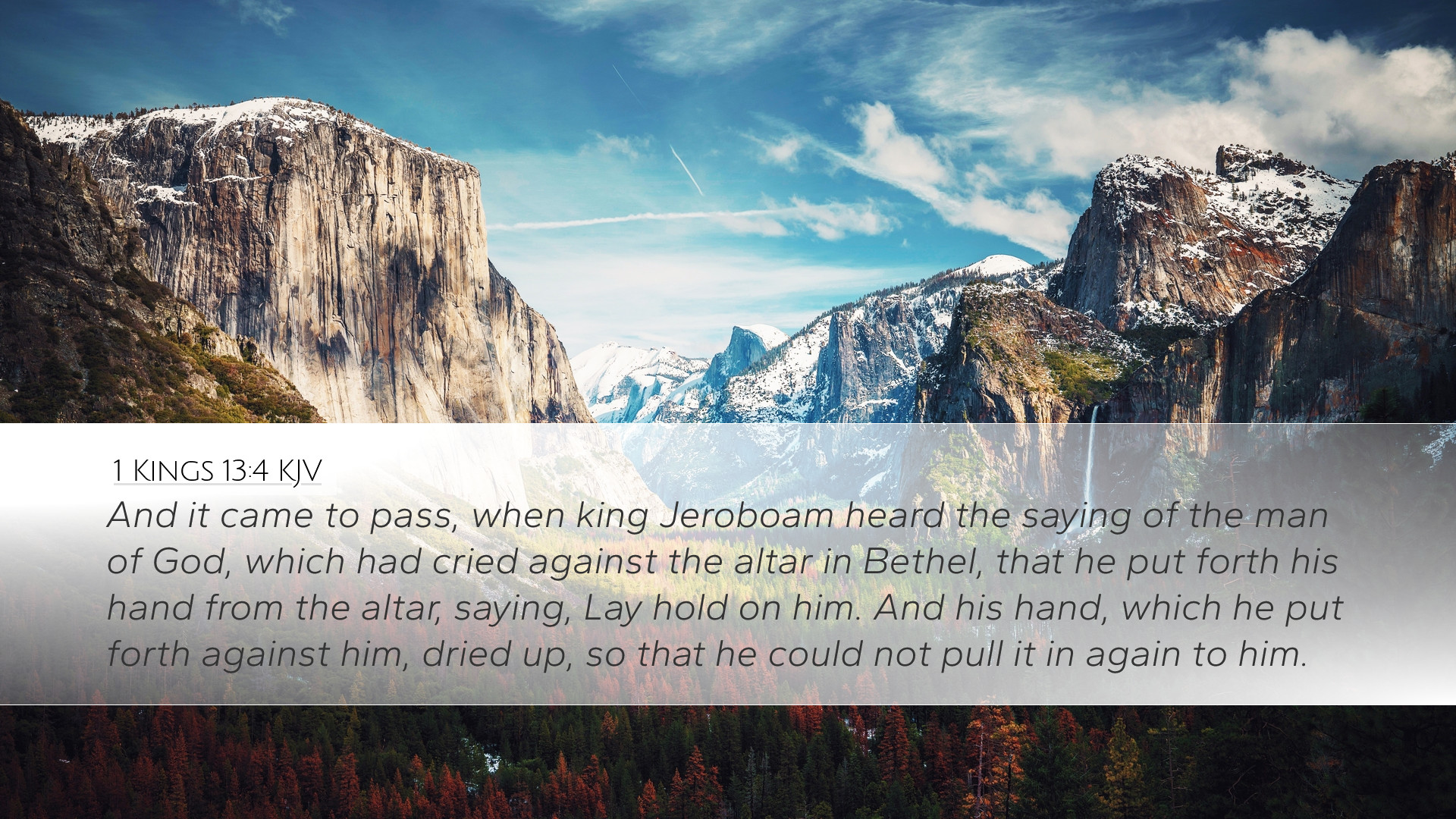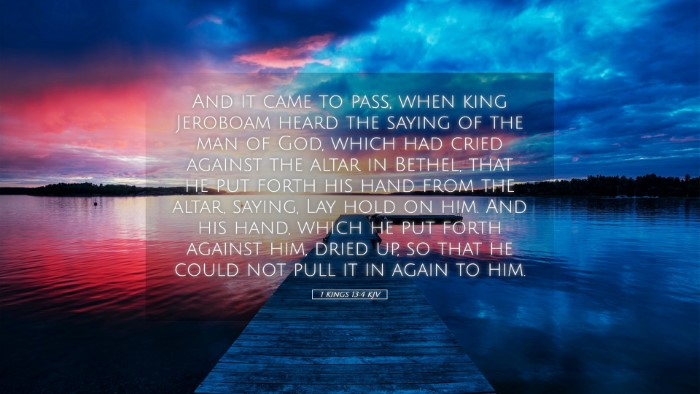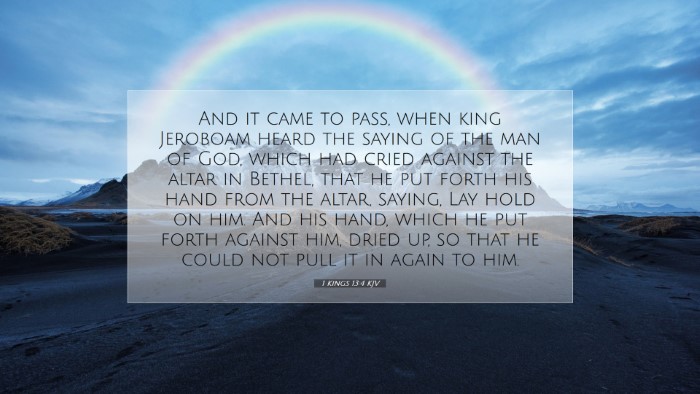Commentary on 1 Kings 13:4
Verse Text: "And it came to pass, when king Jeroboam heard the saying of the man of God, which had cried against the altar in Bethel, that he put forth his hand from the altar, saying, Lay hold on him. And his hand, which he put forth against him, dried up, so that he could not pull it in again to him." - 1 Kings 13:4 (KJV)
Introduction
The narrative of 1 Kings 13:4 presents a striking account of divine intervention and judgment. This passage is part of a larger story involving the man of God sent to prophesy against the altar at Bethel, a significant historical moment for Israel under Jeroboam's rule. Commentators such as Matthew Henry, Albert Barnes, and Adam Clarke provide valuable insights into the theological implications and historical context of this event.
Contextual Background
The historical context of this passage is crucial for its interpretation. Following Solomon's reign, the kingdom of Israel was divided, with Jeroboam leading the northern tribes. He established new centers of worship in Bethel and Dan to prevent the people from returning to Jerusalem. This act was both a political strategy and a deviation from rightful worship, making it the perfect backdrop for the prophetic message delivered by the unnamed man of God.
The King's Reaction
Upon hearing the proclamation against the altar, Jeroboam’s immediate reaction was defiance. He reached out his hand to seize the prophet, illustrating a common human response to perceived threats against power. As Matthew Henry notes, Jeroboam's attempt to silence the man of God signifies a heart hardened against divine authority. The king's reaction also serves to highlight the seriousness of his rebellion against God.
Divine Judgment
Jeroboam's hand withered as a direct response to his challenge against God’s emissary. Albert Barnes emphasizes that this physical ailment was not merely punishment; it was a sign meant to demonstrate God's sovereignty and authority. The drying up of Jeroboam's hand represents the futility of resisting God's will. This act of divine judgment serves as a reminder that God will not be mocked, and those who oppose His messages must face the consequences.
The Impotence of Man's Power Against God's Word
The impotence of Jeroboam's power is vividly expressed in the narrative. Adam Clarke points out that despite his position as king, Jeroboam could not pull back his hand once it was withered. This symbolizes the reality that human authority is secondary to divine authority. The moment underlines the truth that no earthly ruler can stand in opposition to God's plans without facing dire consequences.
The Significance of Prophetic Authority
The man of God represents a vocal testament of divine truth in an era where false worship was prevalent. His message against the altar serves as a clarion call back to fidelity in worship. As observed by Matthew Henry, the man of God's unwavering faith in delivering a difficult message exemplifies the role of the prophet: to confront, proclaim, and guide God’s people toward adherence to divine commandments.
Lessons for the Church
For contemporary readers, this passage emphasizes the necessity of remaining steadfast against cultural currents that divert worship away from God. Albert Barnes suggests that pastors and church leaders should be wary of power structures that can lead them away from biblical truths. The story of the man of God serves as a reminder to remain true to one's calling, despite external pressures or threats.
Application
As we reflect on 1 Kings 13:4, several applications emerge for believers today:
- Standing Firm in Faith: The man of God stands firm in his proclamation, an admonition for believers to remain faithful to God's Word in the face of adversity.
- The Authority of God's Word: The drying up of Jeroboam's hand serves as a potent reminder that God's Word holds ultimate authority over all creation.
- Awareness of Judgment: Jeroboam’s reaction and subsequent punishment highlight the seriousness of turning away from God and the necessity to heed prophetic warnings.
Conclusion
The account in 1 Kings 13:4 provides profound insights into the nature of divine authority and human rebellion. With lessons that transcend time and cultural contexts, this passage challenges leaders, scholars, and believers to remain anchored in faithfulness to God's call. By recognizing the greatness of God's sovereignty as displayed through the man of God and Jeroboam's judgment, we are prompted to evaluate our own lives and ministries in the light of divine truth.


